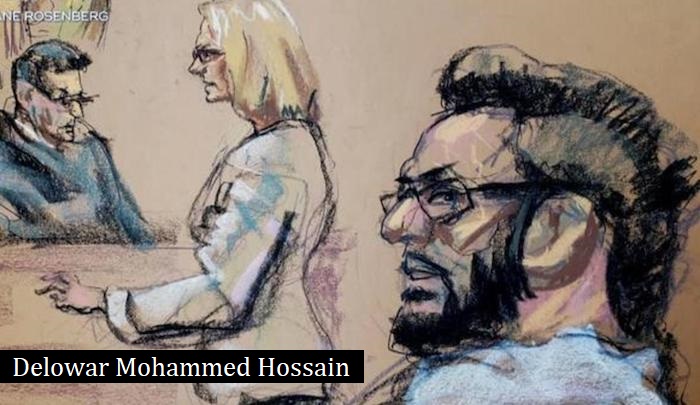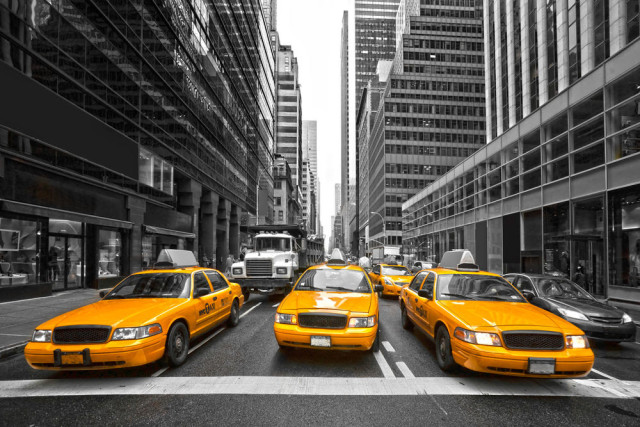A New York magazine article headline declares, “De Blasio’s Proposal to Destroy Pedestrian Times Square Is the Opposite of Progressive.”
That’s Bill de Blasio, the current mayor of New York City, who was elected in 2013 after running unabashedly as the progressive, socially democratic candidate. I find it interesting that people are surprised by the mayor’s illiberal stands on many (though not all) of the major issues he has faced in his short time in office.
One of the latest is his proposal to return cars to Times Square Plaza, in the heart of Midtown Manhattan, by razing the outdoor space created by the administration of his Republican predecessor, Michael Bloomberg. You see, Mayor Bill says he doesn’t like the goings-on there, which lately include women soliciting topless on the street and people dressed as Elmo hustling tourists. His solution? We can’t control all the hucksterism, so let’s shut the whole thing down!
Justin Davidson, the author of that New York magazine article, says it well:
If de Blasio really believes that the best way to deal with street performers in Times Square is to tear up the pedestrian plaza, may I suggest he try reducing homelessness by eradicating doorways and subway grates?
My point goes beyond Times Square Plaza, of course, although that controversy is instructive, as are others (such as his recent attempt to rein in Uber).
The approach the mayor takes in this and similar matters is characteristic of any political ideology that views unrestrained political power as a legitimate tool of social change. That includes neoconservatism and other modern political ideologies, including progressivism.
While it’s a caricature to say that what progressives would not forbid, they would make mandatory, they show a pattern of using force to ban what they don’t like and of mandating what they do. If you think that sounds illiberal, you’re right. Progressivism isn’t liberalism, especially of the classical variety. But even the watered-down liberalism of campus radicals of the 1960s paid more heed to the principle of tolerance than progressives today do.
Progressivism versus Liberalism
Progressivism today goes beyond the liberal position that, for example, same-sex marriage should have the same legal status as heterosexual marriage, to the belief that the state should threaten physical violence against anyone who refuses to associate or do business with same-sex couples.
Progressives have a low tolerance for opposing points of view. Unfortunately, so do some libertarians, but for the most part libertarians do not endorse using political power to eradicate what they believe are disagreeable public activities. Libertarians are much closer to genuine liberals than progressives are.
To a genuine liberal, tolerance means more than endorsing a wide range of beliefs and practices. It means allowing nonviolent people to say and do things that we strongly disagree with, disapprove of, or find highly offensive. It means not assuming our own moral superiority over the wickedness or stupidity of our ideological opponents. English writer Beatrice Evelyn Hall captured that liberal spirit when she (and not Voltaire) wrote, “I disapprove of what you say, but I will defend to the death your right to say it.”
The plaza and the streets it encompasses were, of course, the creation of government, so we’re not talking about the municipality bulldozing private property. But it’s not the government-created structure the mayor is objecting to; it’s the purely voluntary — “unregulated” — activities going on in it that he doesn’t like and wants to wipe out with heavy hands and hammy fists.
Closing the Gap Economy
The activity in Times Square Plaza is related to what I called in a recent column the “gap economy,” which refers to the unregulated, money-making activities that arise in the free spaces left open by government regulation and that complete with businesses that have adapted themselves to the mixed economy. Progressives like Mayor de Blasio seem to fear what they cannot regulate and control. They don’t understand that in the free market, there is regulation and that the regulatory principle is not coercion but persuasion, competition, and reputation.
Progressives profoundly mistrust the spontaneous, especially when it’s the result of people acting out of self-interest. But that’s the hallmark and the essence of urban life. New York Times architecture critic Michael Kimmelman sees it this way:
Time and again, Mr. de Blasio leaves an impression that he understands very little about the dynamics of urbanism and the physical fabric of the city — its parks and plazas, its open spaces, libraries, transit network and streetscape, which all contribute to issues he cares most about, like equity and social mobility.
He doesn’t understand because he probably thinks in terms of specific, static objectives (such as his so-called “Vision Zero,” which I write about in “Um, Scarcity?”) rather than what Kimmelman rightly refers to as “the dynamics of urbanism.” As the urbanist (and libertarian friendly) Jane Jacobs explained, those dynamics are messy and inherently unpredictable.
It doesn’t seem to matter to the mayor that ordinary people have demonstrated their preference for Times Square Plaza by showing up in record numbers, just as it doesn’t matter that ordinary New Yorkers have gained from gap-economy activities such as Uber or Airbnb. What concerns progressives like the mayor is that it’s not happening the way they want it to happen. (In the case of Uber, thank goodness, the truly liberal elements of New York soundly defeated the progressive forces.)
Davidson writes,
I understand that the mayor doesn’t care for the carnival atmosphere at Times Square — neither do I. But eradicating a pedestrian plaza because you don’t like who’s walking there is like blasting away a beach because you object to bikinis or paving a park because you hate squirrels. It represents such a profound misunderstanding of public space that it makes me question the mayor’s perception of what counts as progressive.
It’s not the mayor Davidson should be questioning so much as the principles that motivate him. De Blasio just happens to illustrate progressivism in a particularly glaring way.
 Sandy Ikeda
Sandy Ikeda
Sandy Ikeda is a professor of economics at Purchase College, SUNY, and the author of The Dynamics of the Mixed Economy: Toward a Theory of Interventionism.
RELATED ARTICLE: Lessons Learned From Kim Davis About Religious Liberty and Government Accommodation









